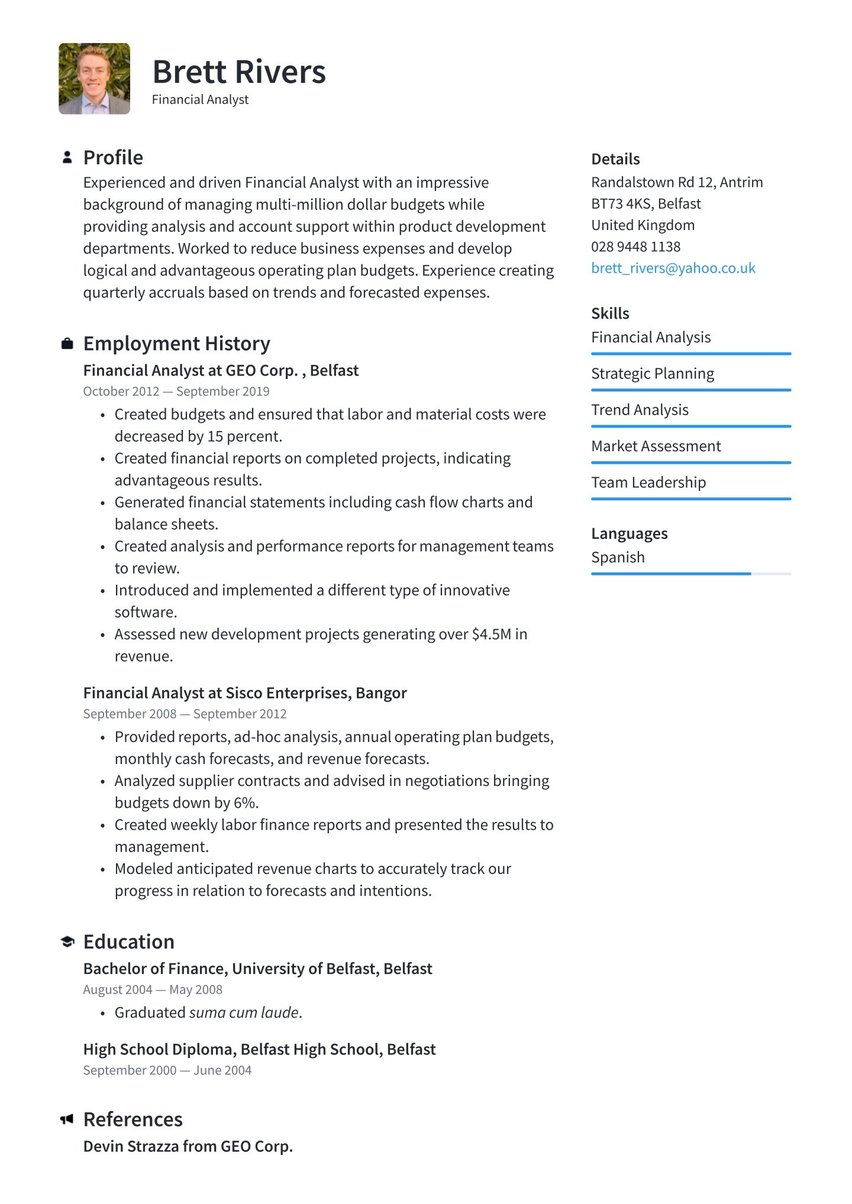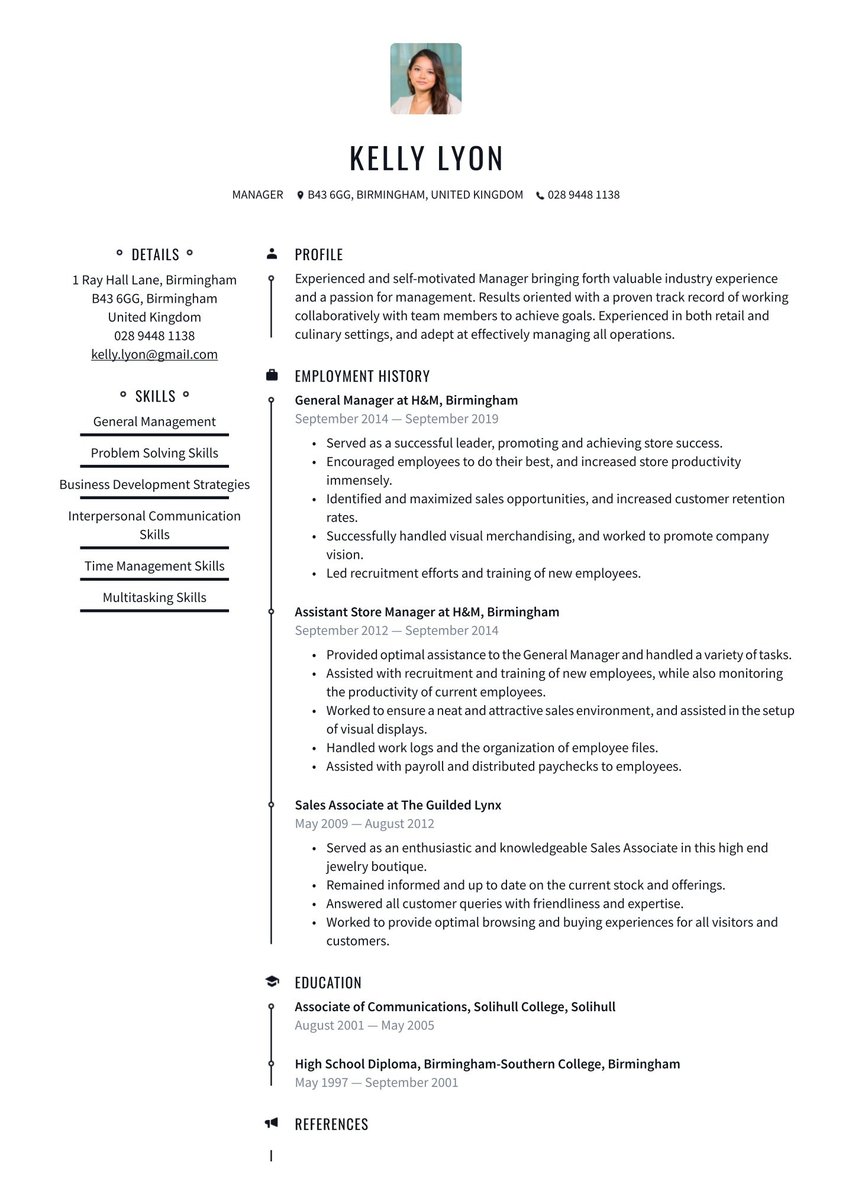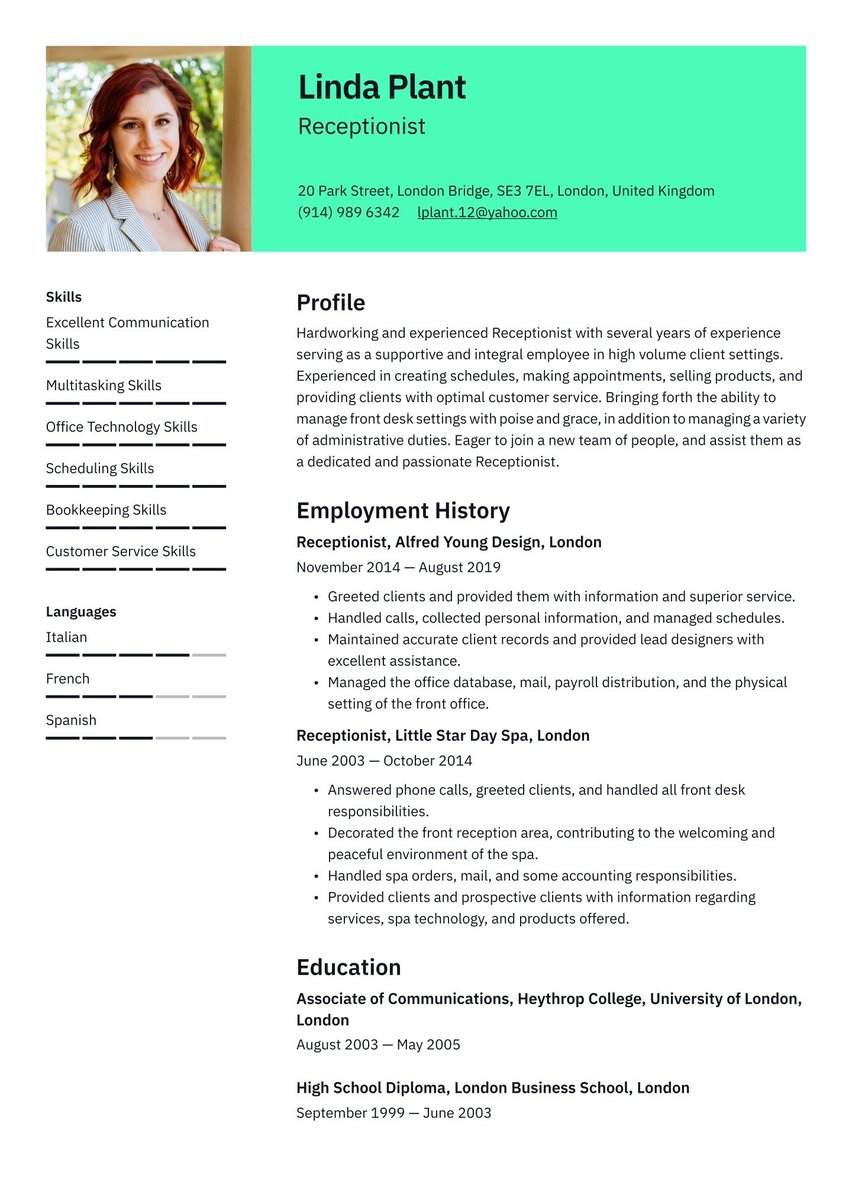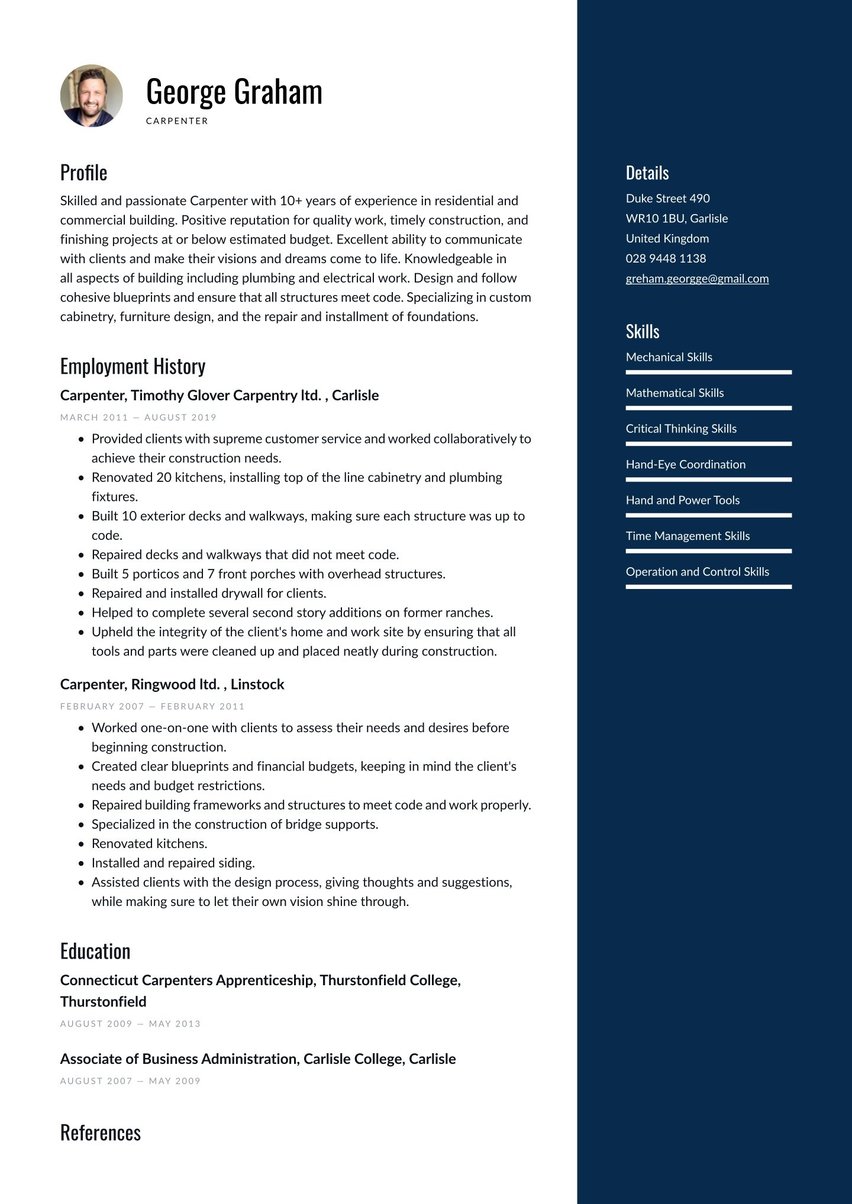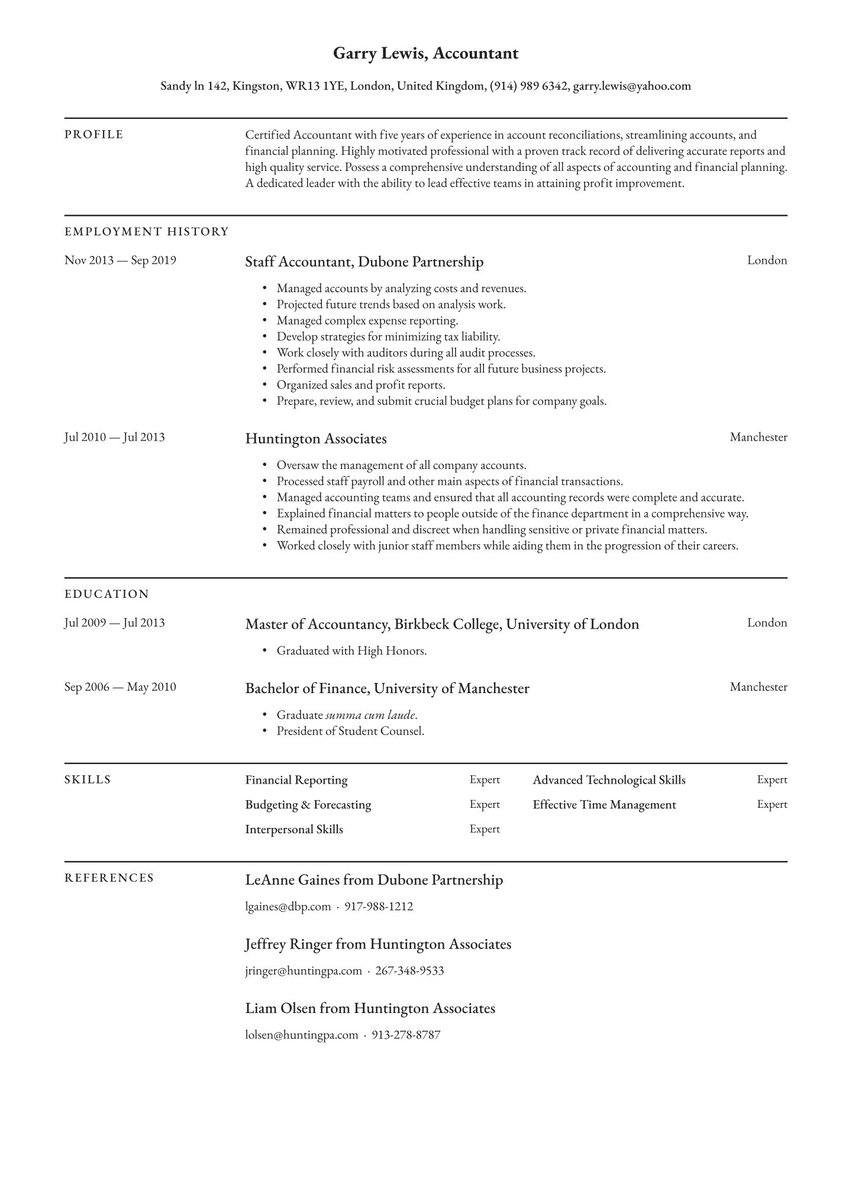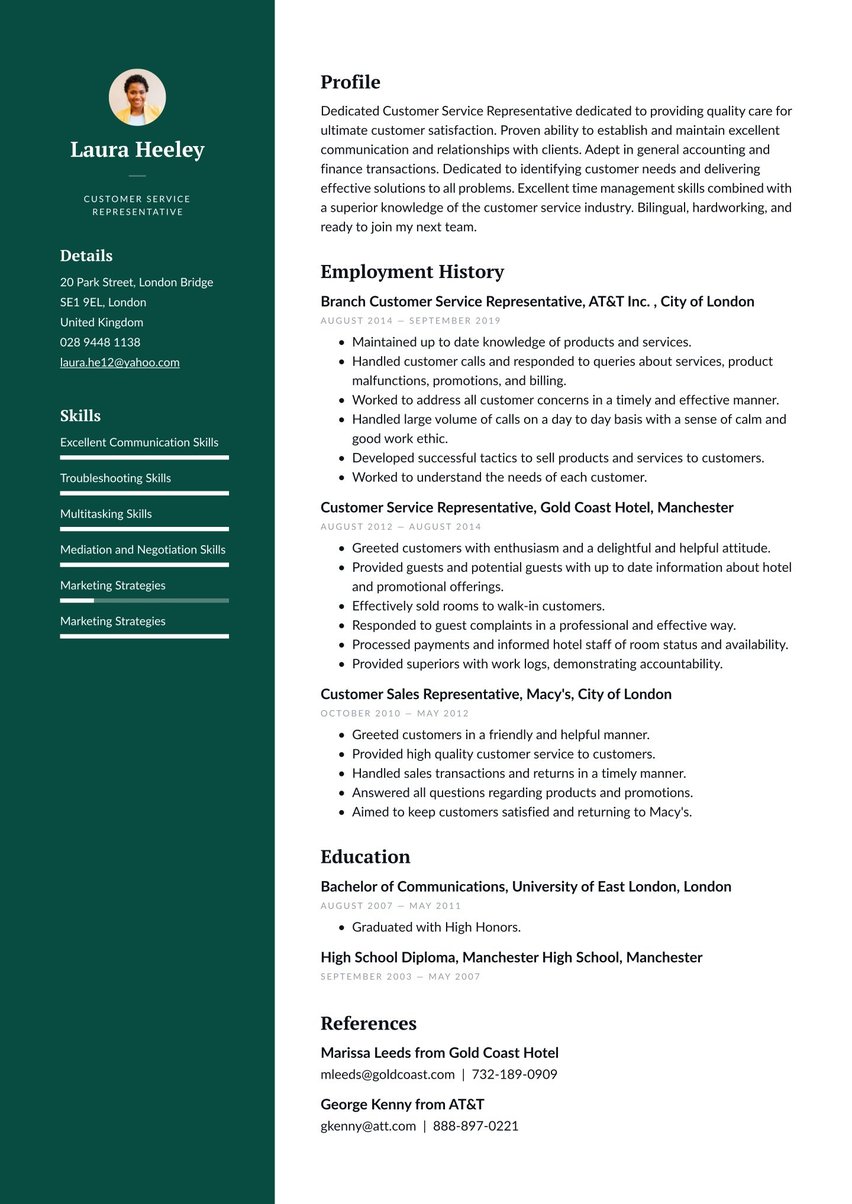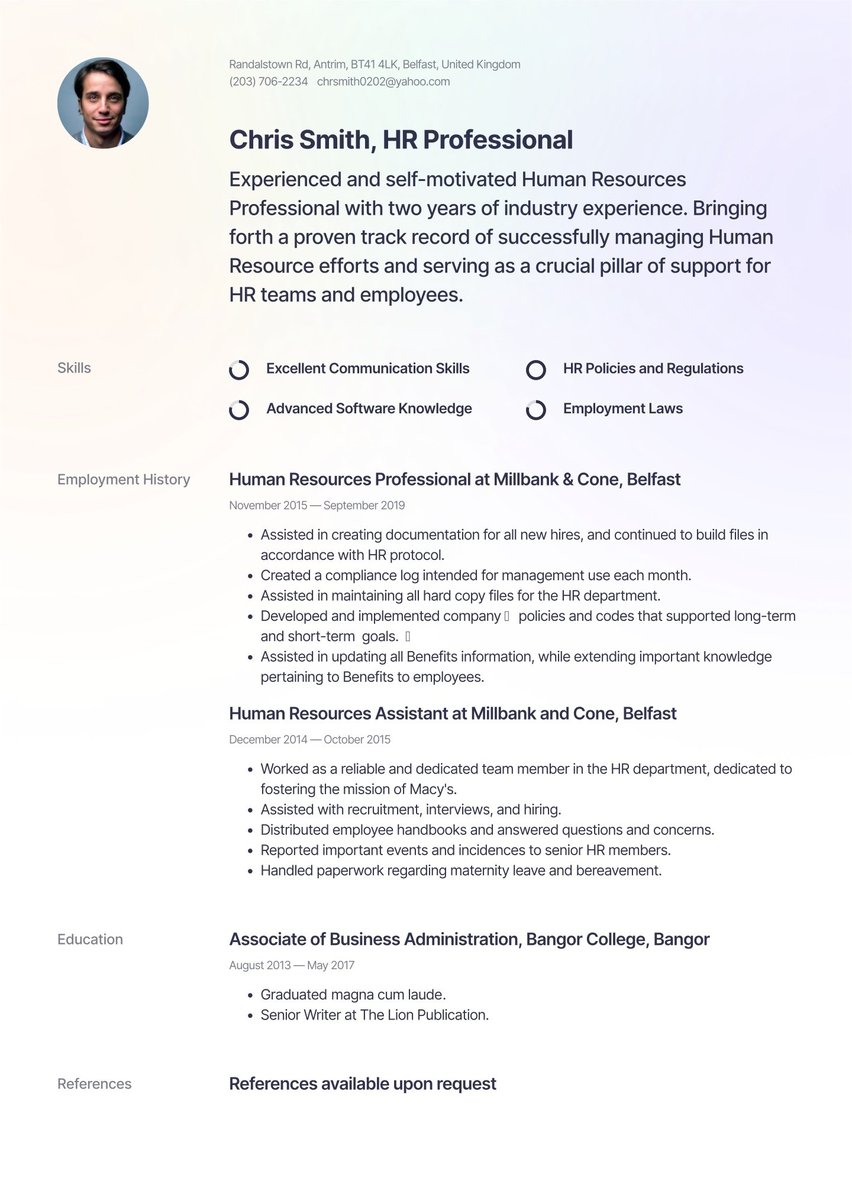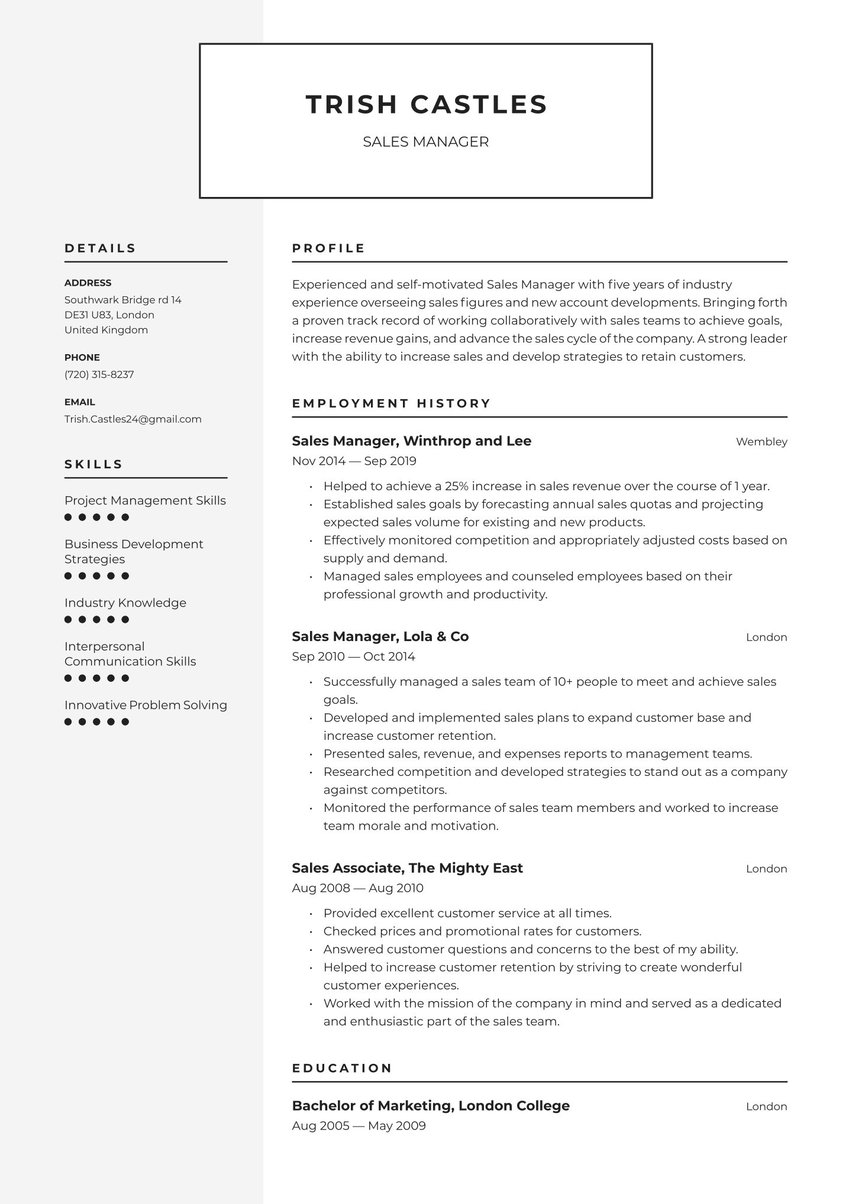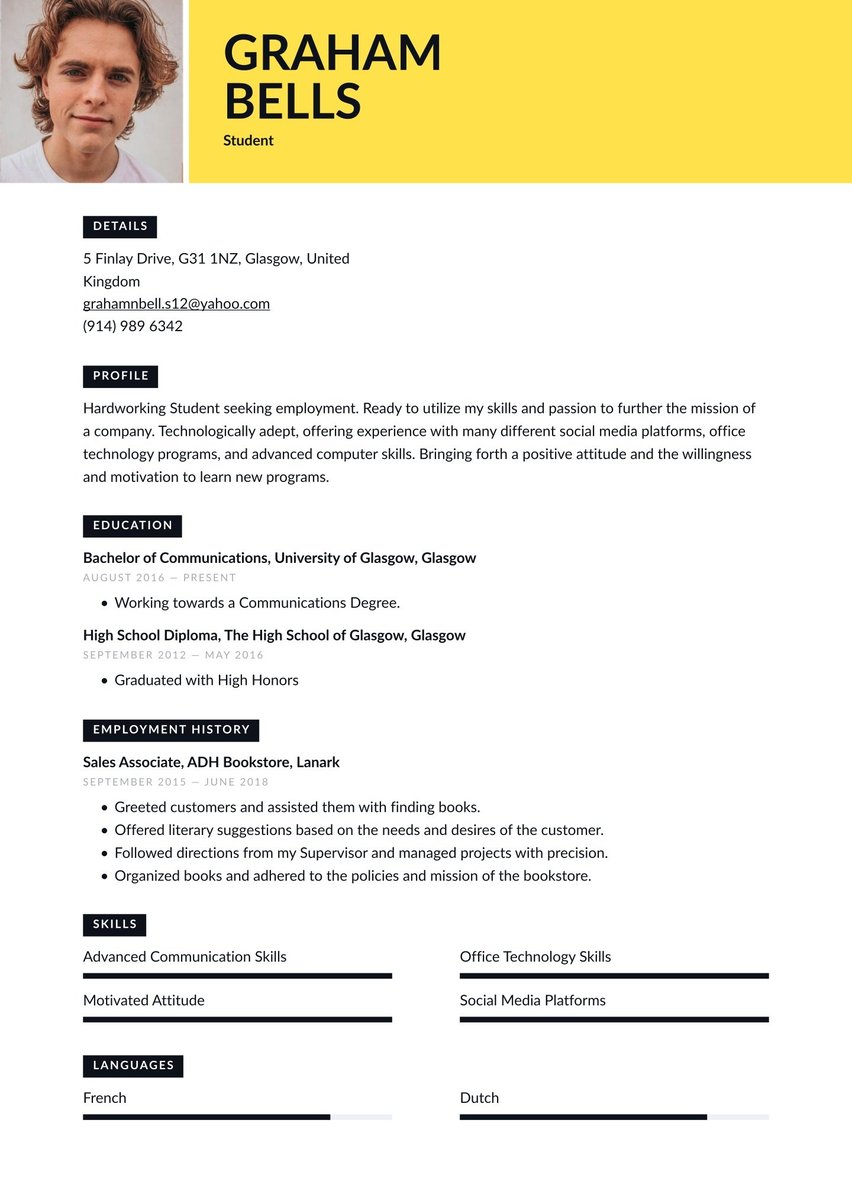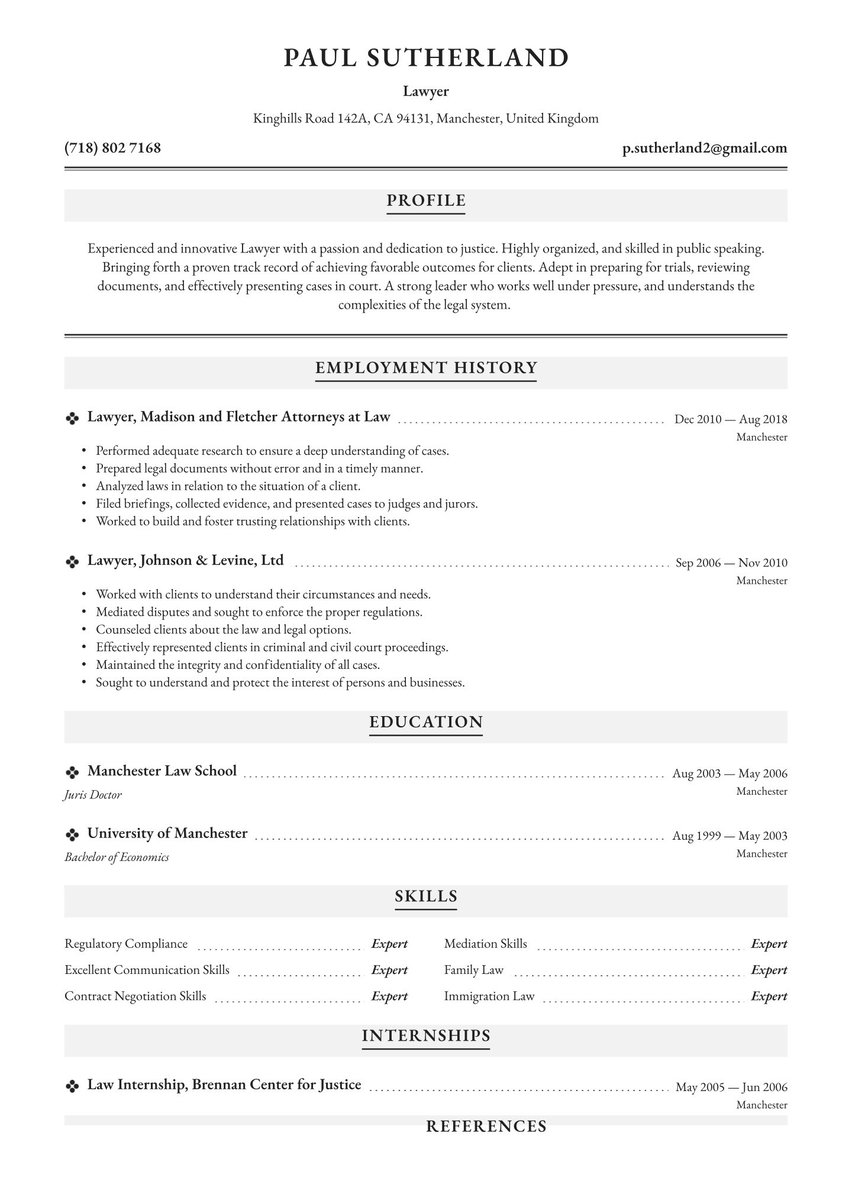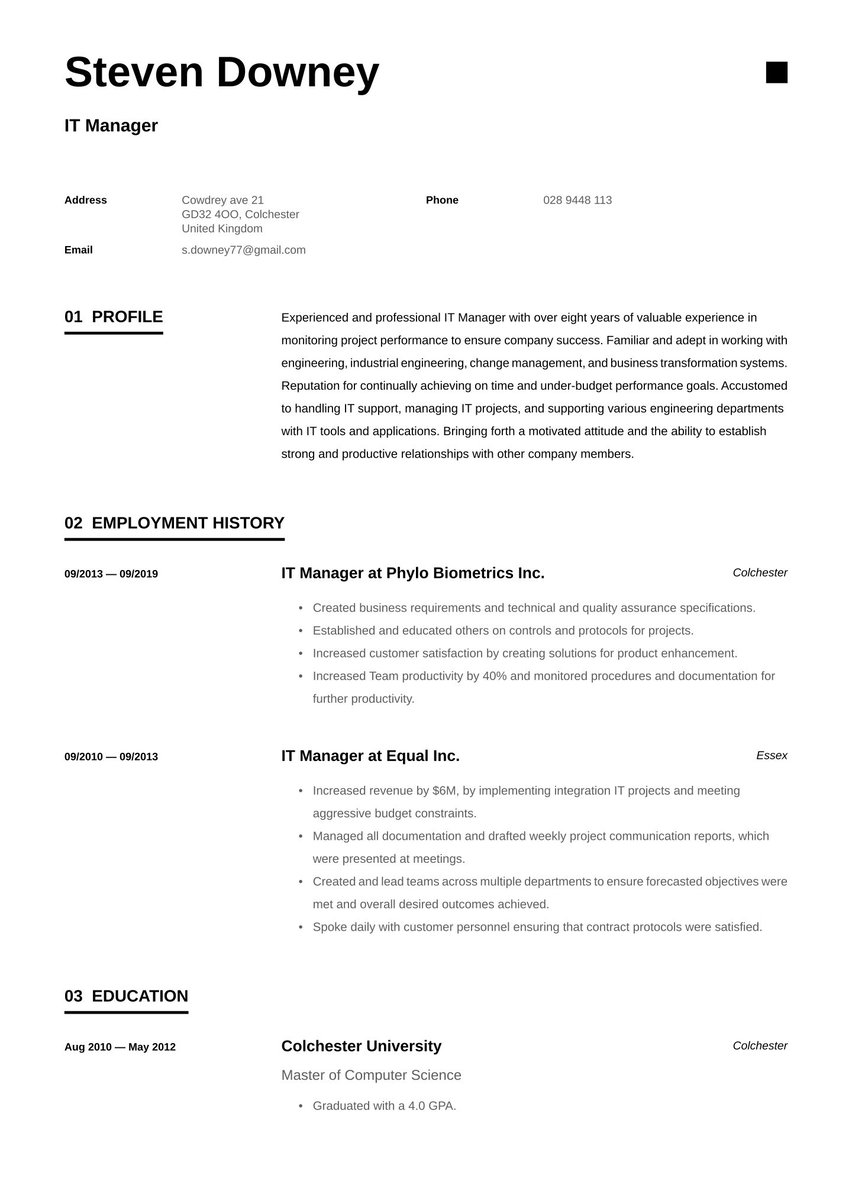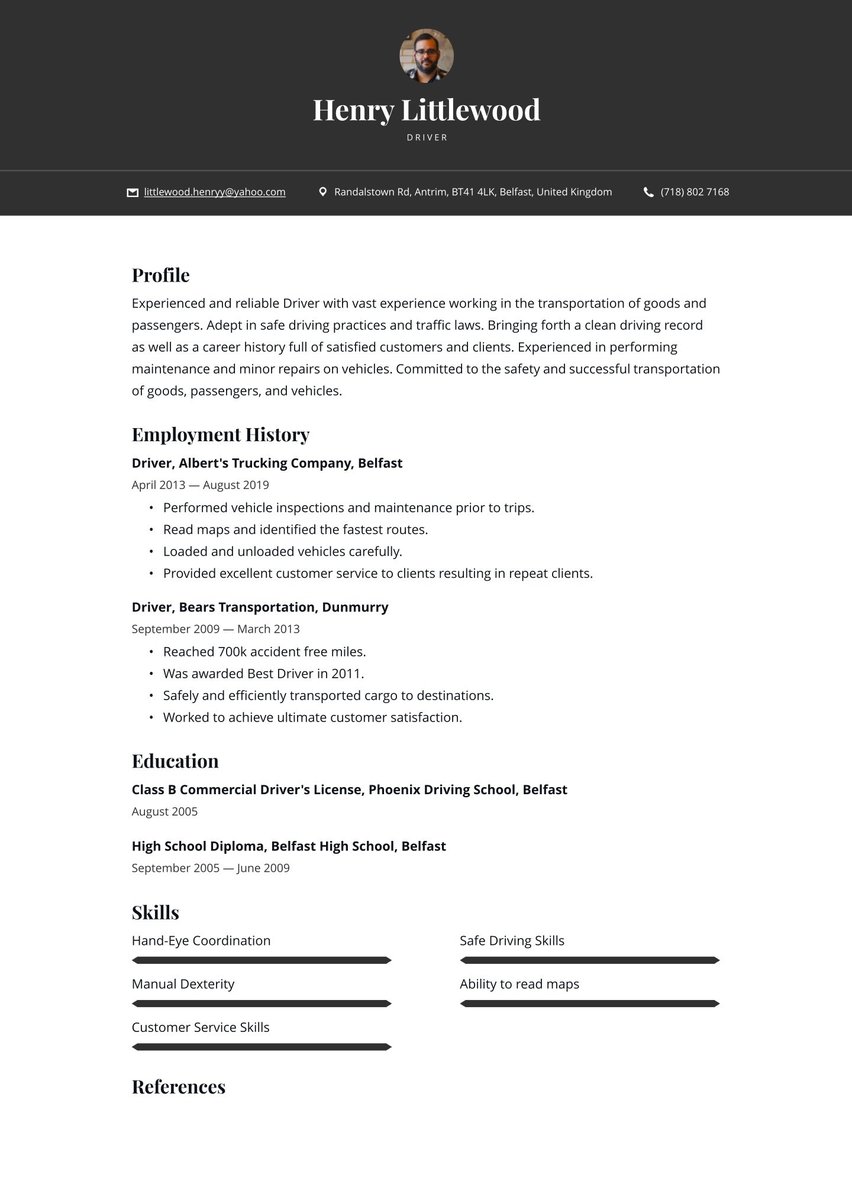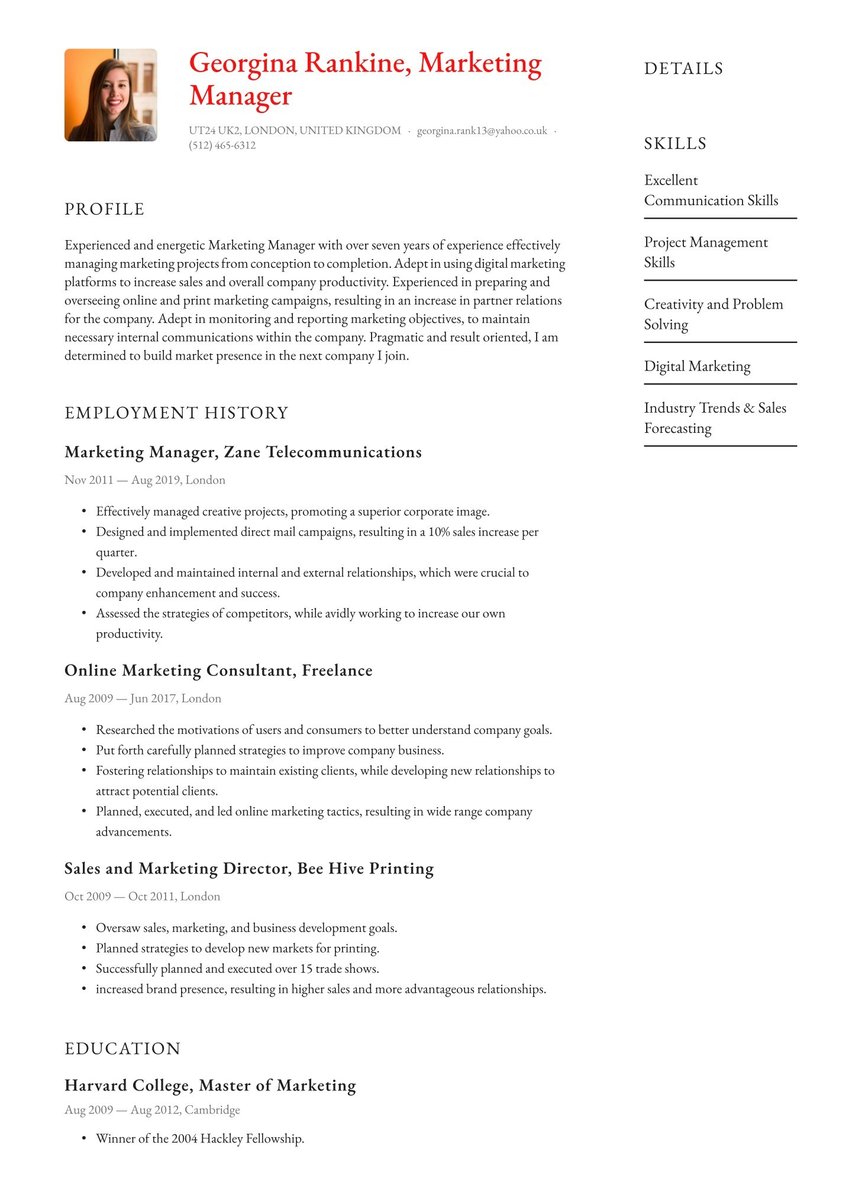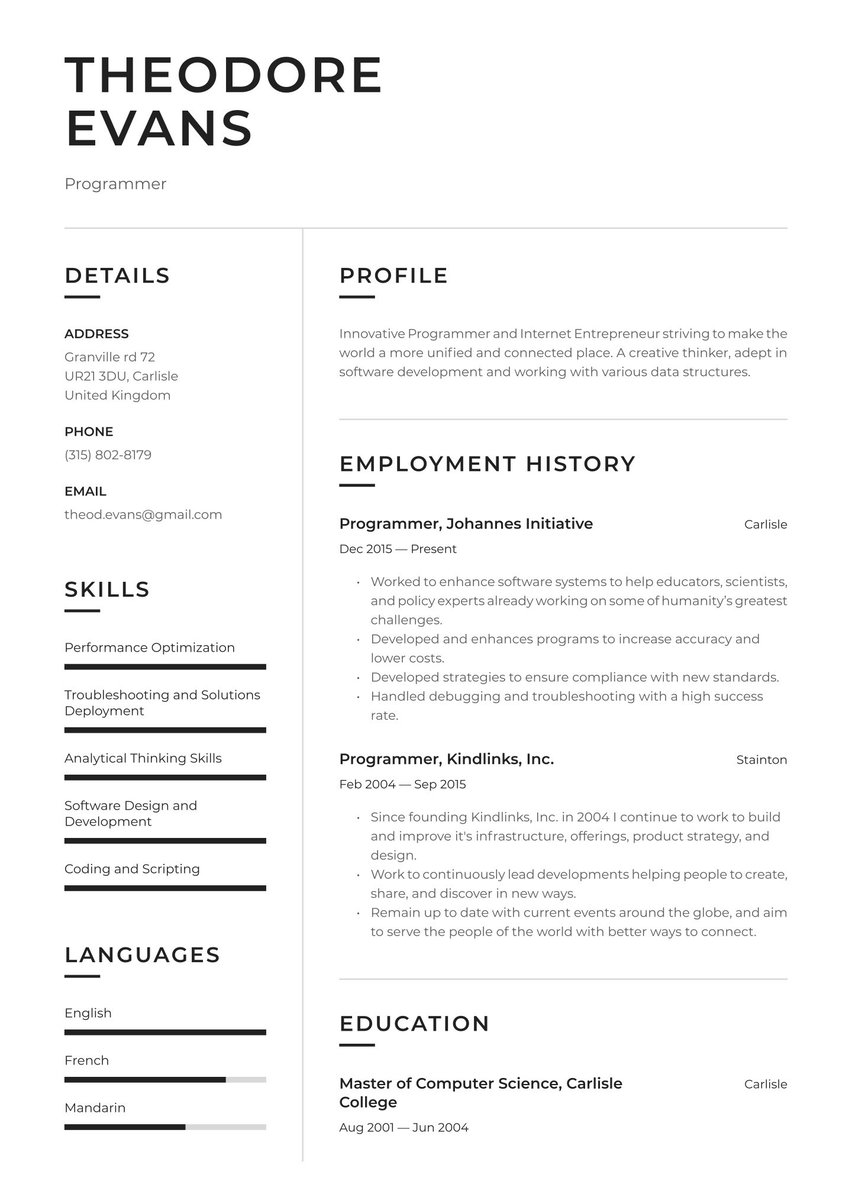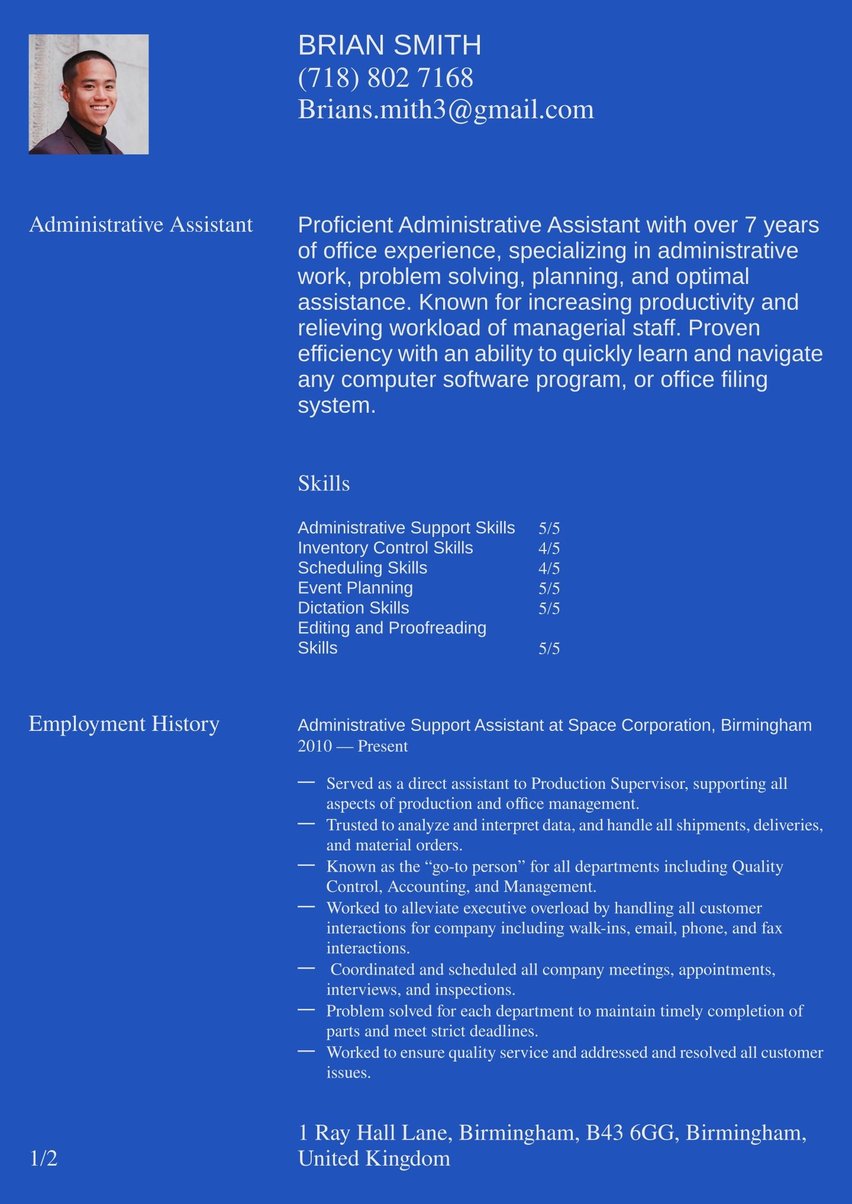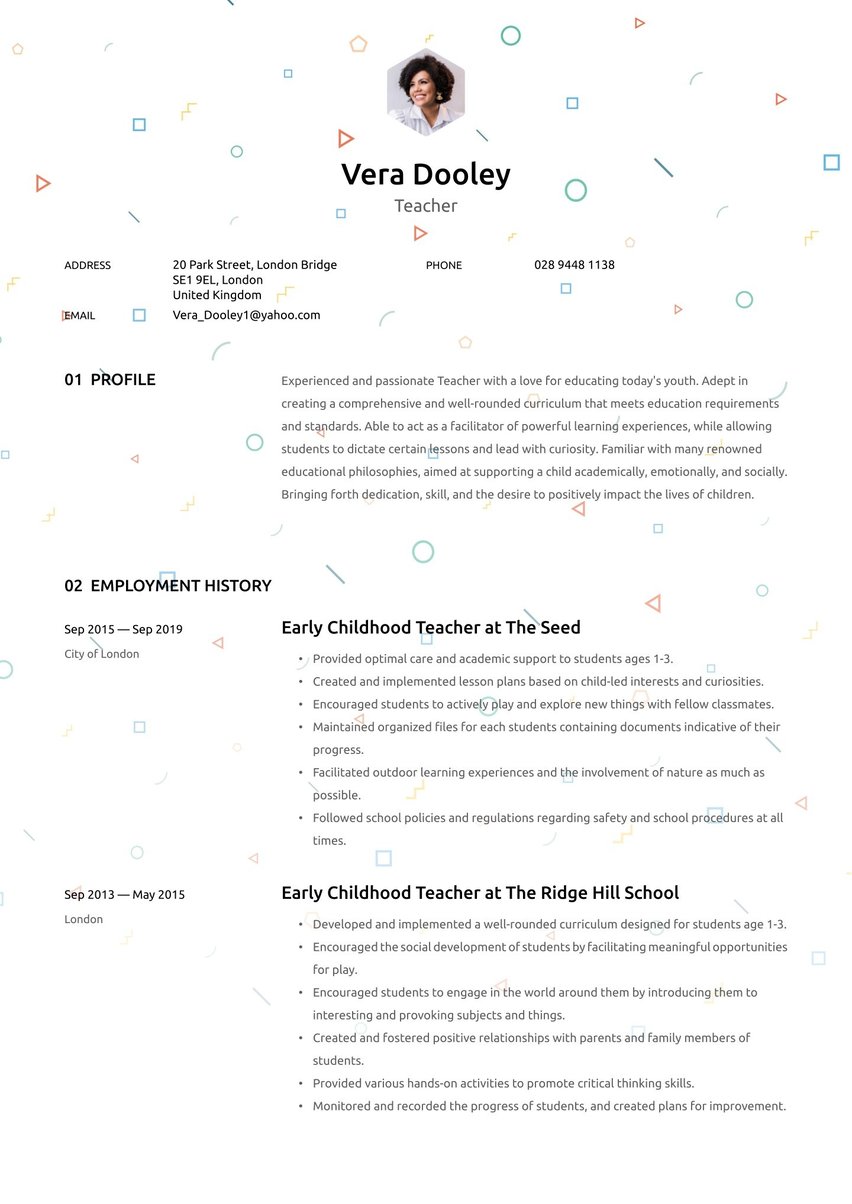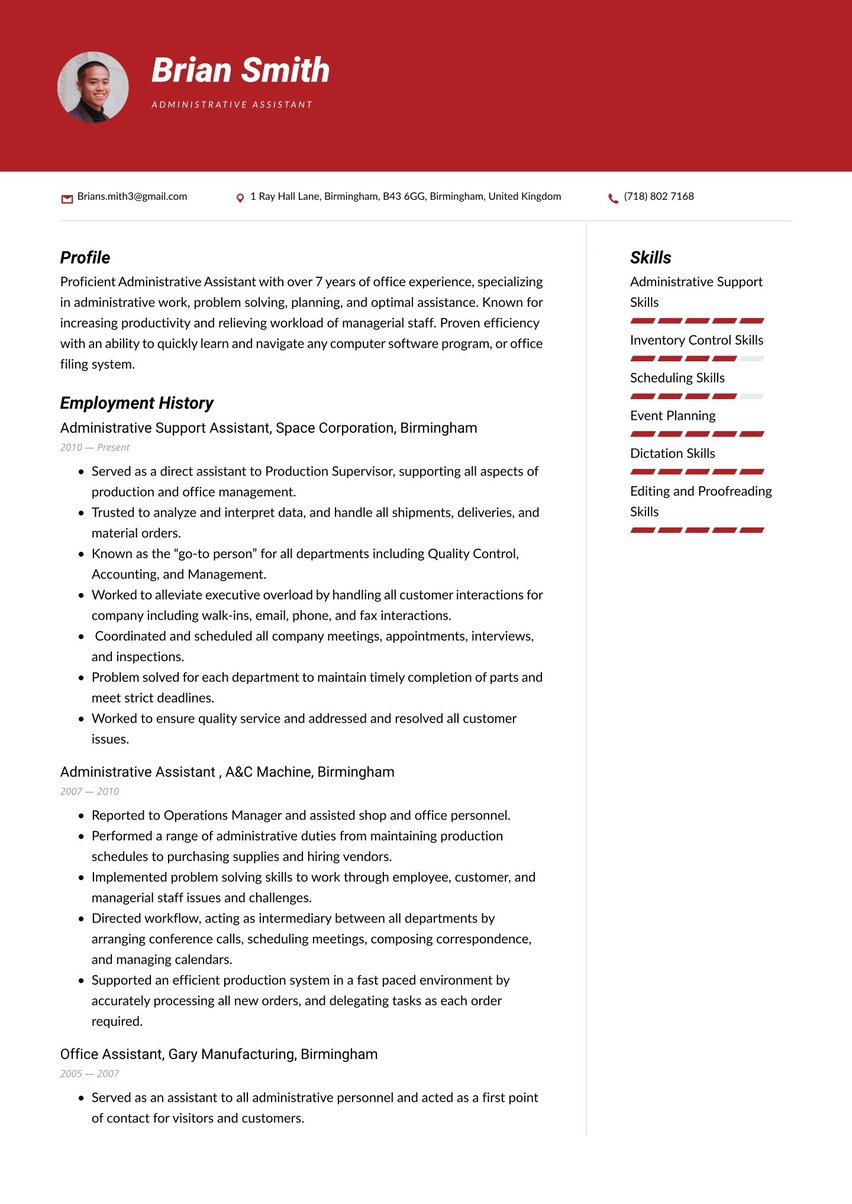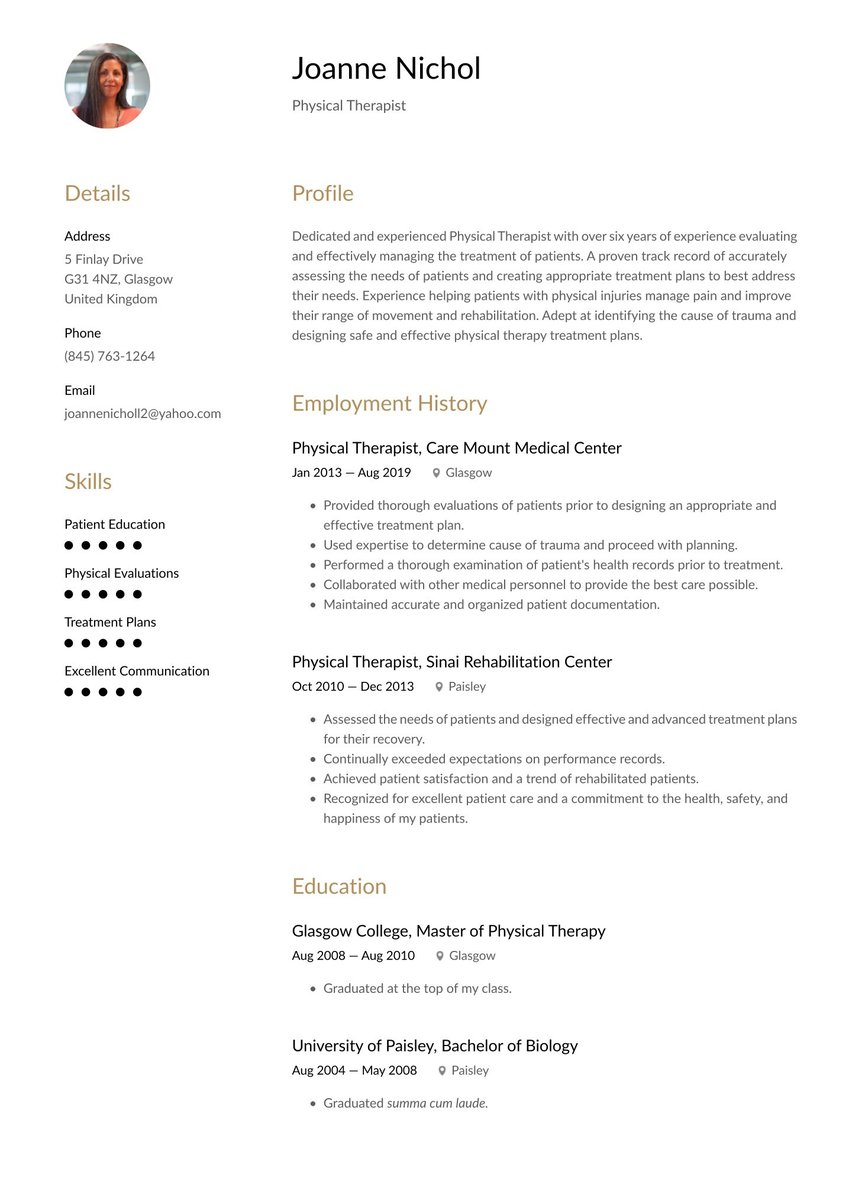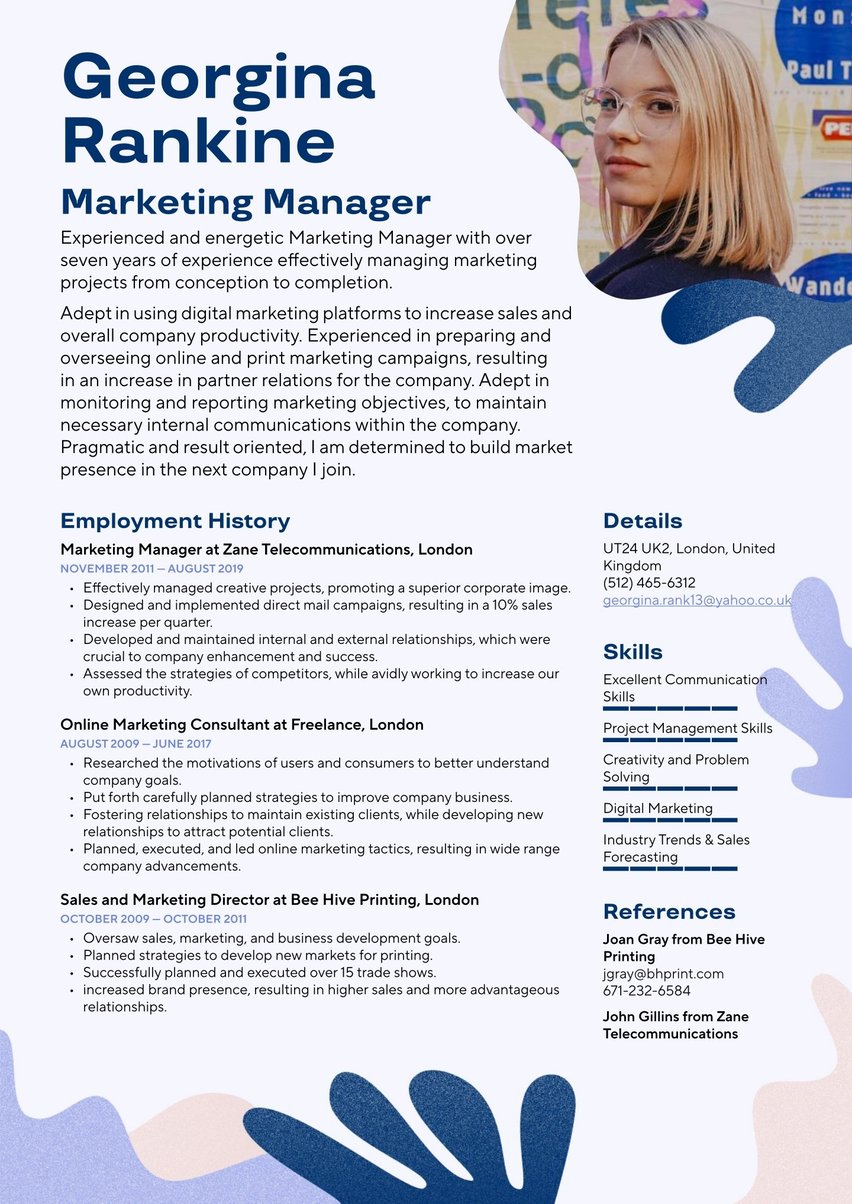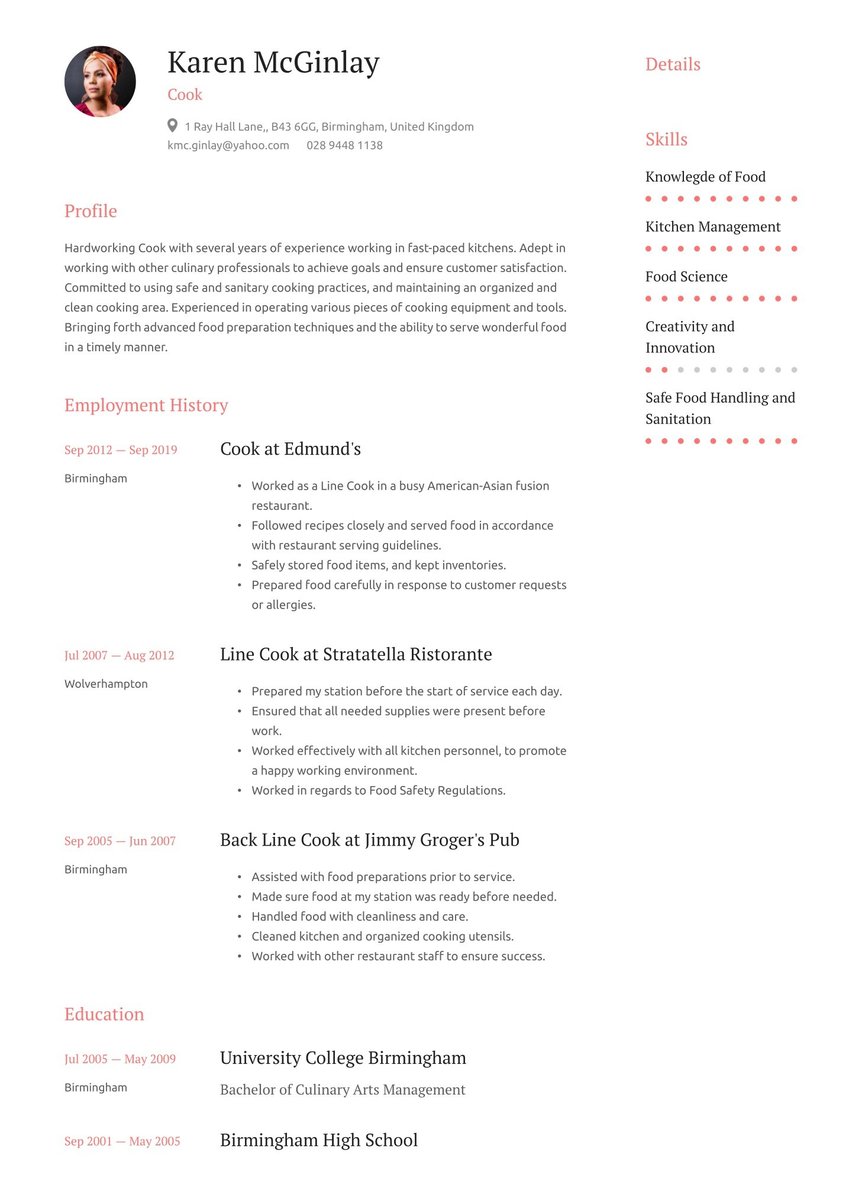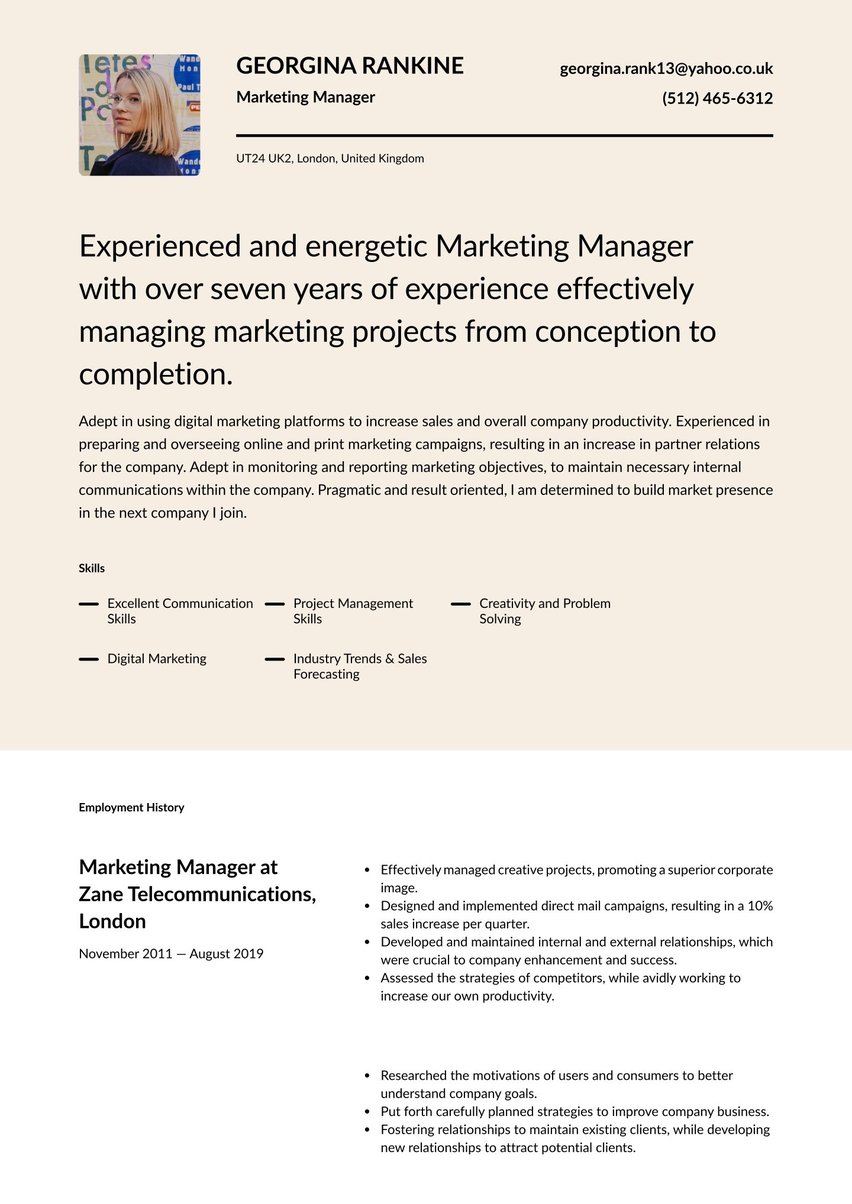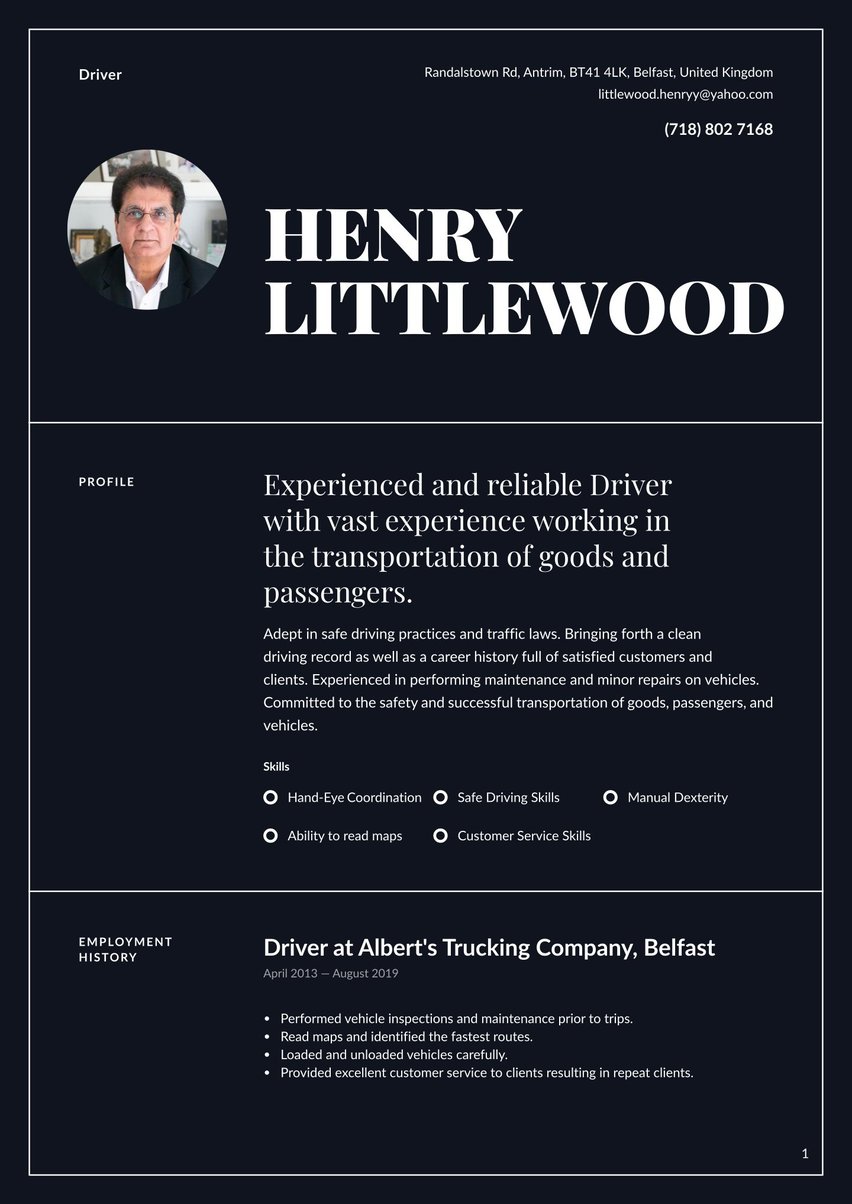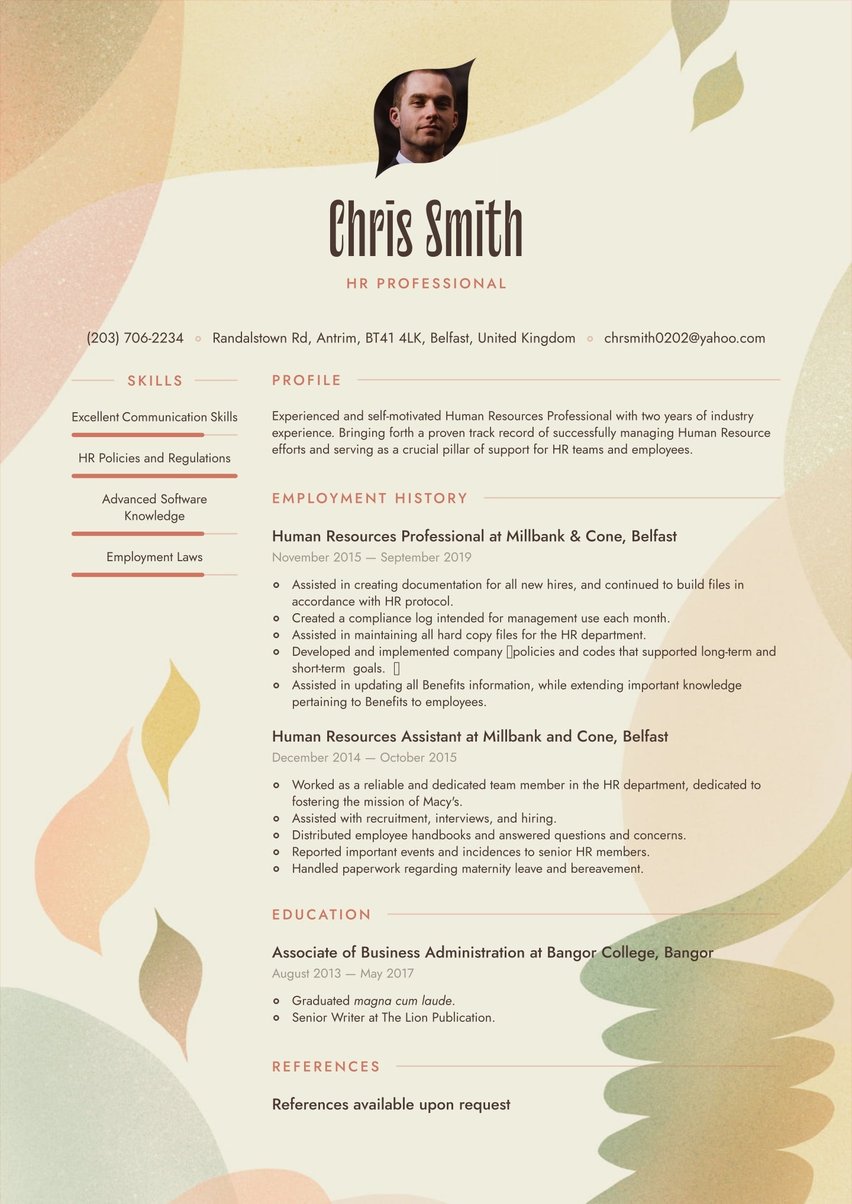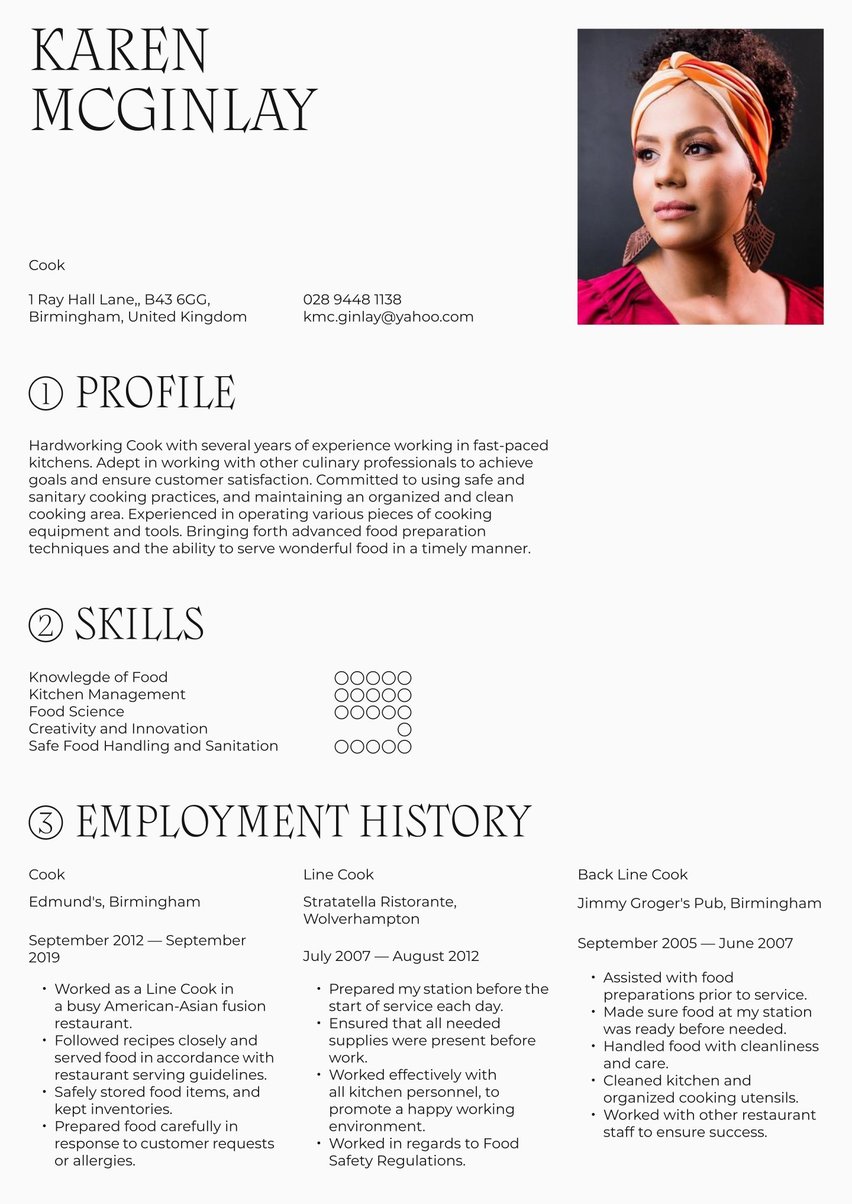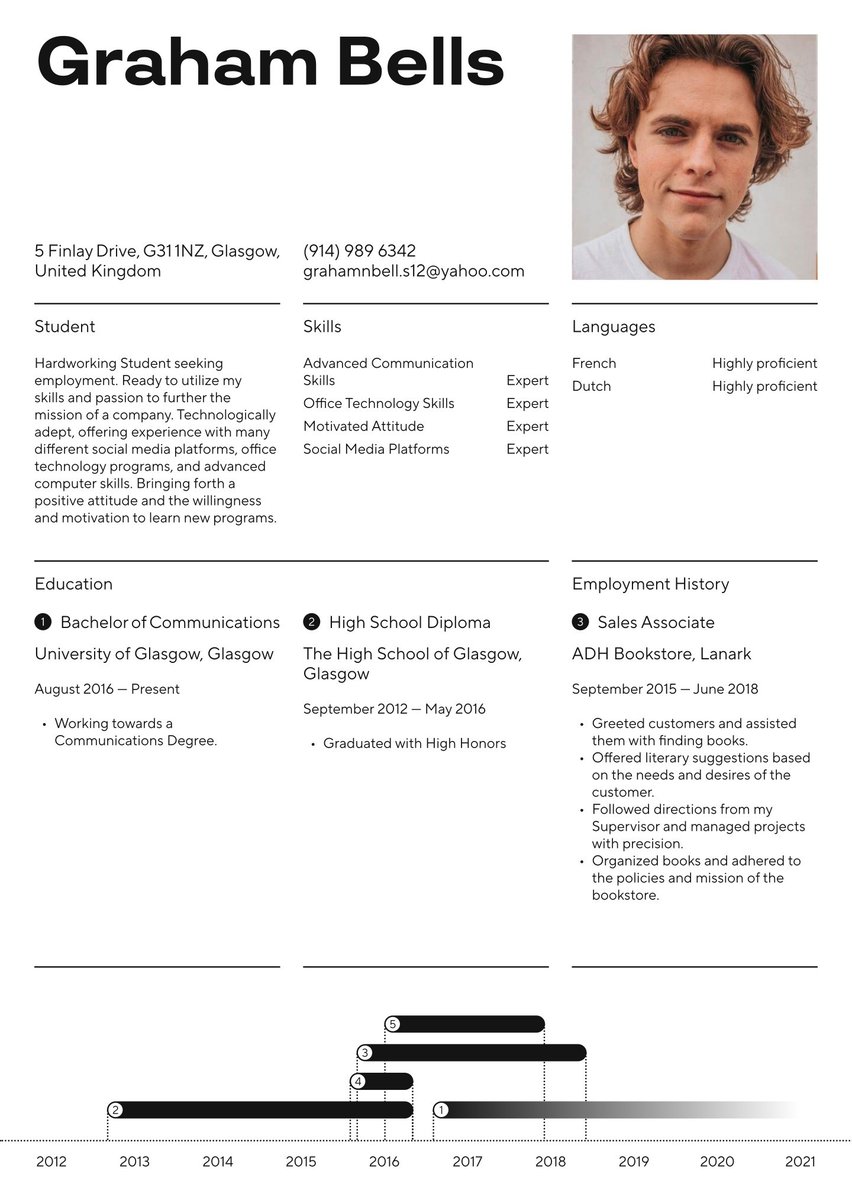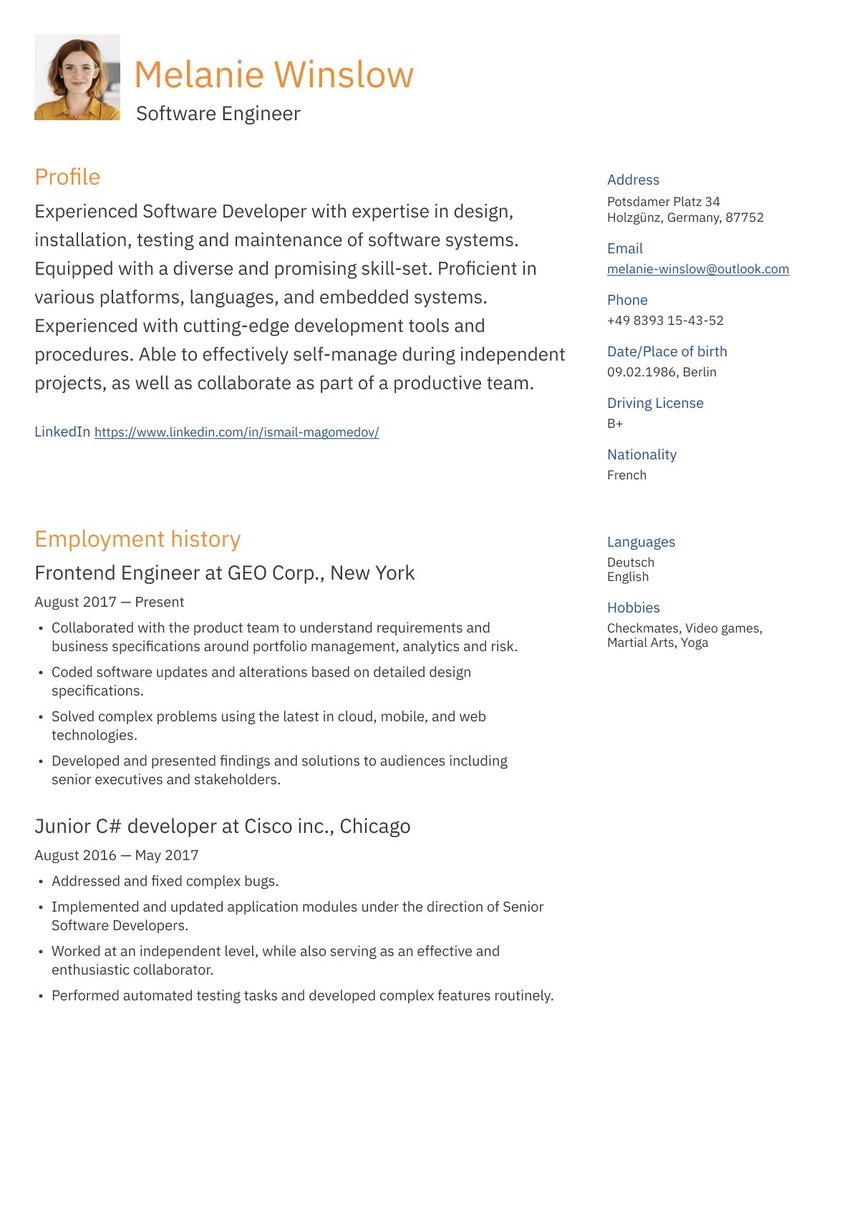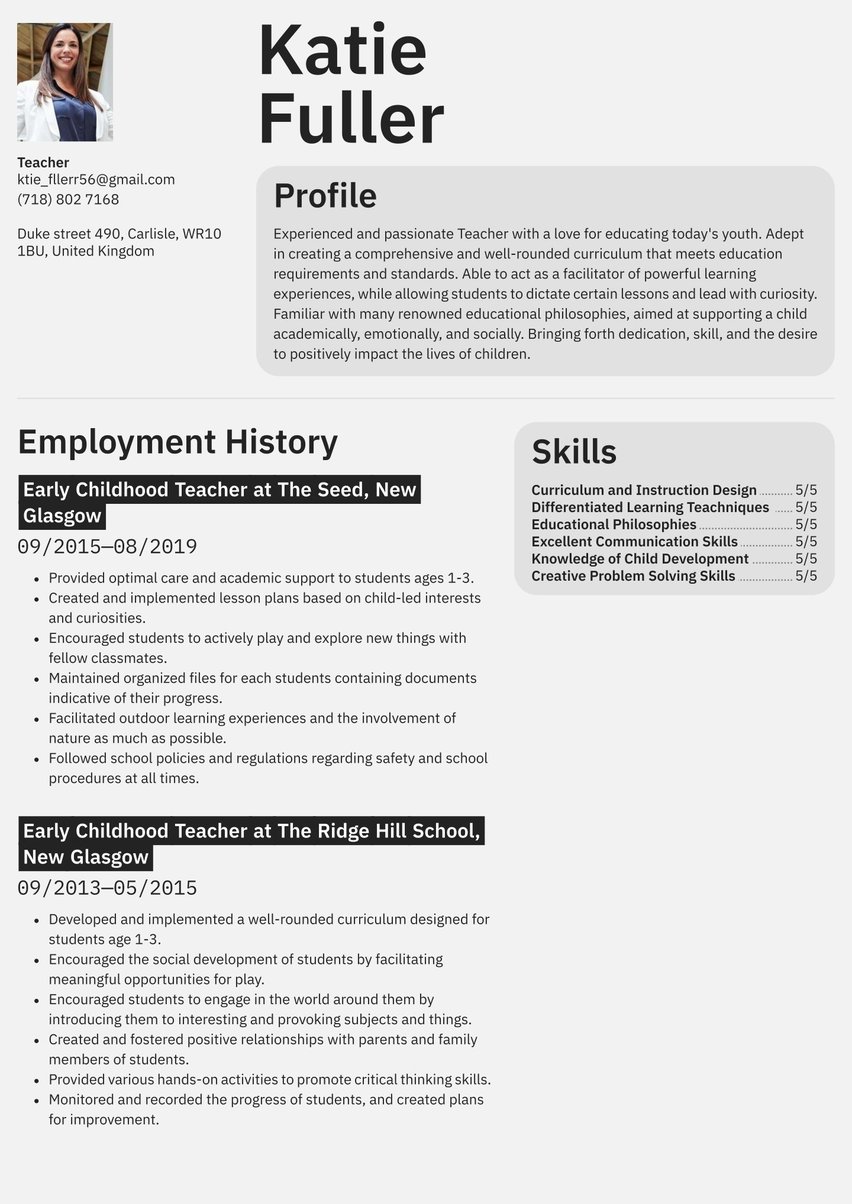Legal secretary with five years’ experience supporting solicitor teams to help multinationals. Experienced in competition law, securities law, and government investigations.
04/2021 - 06/2022, Legal Secretary at Bellmink and Sanders, , York
- Accompanied solicitors to court and helped in writing and organising precise notes from meetings.
- Researched client cases for solicitor team using tools such as Westlaw
- Drafted wills and contracts for team of solicitors.
- Led administrative onboarding of range of clients.
- Maintained detailed notes on client accounts.
- Ensured all sensitive data was stored according to regulations.
01/2018 - 03/2021, Legal Secretary at Finch and Sherman Attorneys at Law, , London
- Conducted legal research and successfully represented 14 clients in intellectual property disputes.
- Provided preemptive guidance and individualized training to clients regarding business transactions and corporate compliance programs.
- Handled cases spanning a vast array of industries, including the aerospace, oil and gas, casino, entertainment, education, and publishing industries, among others.
- Successfully represented clients in multi-billion dollar mergers.
10/2014 - 05/2017, Criminology (BA Hons), University of West of England, Bristol
- English
- Spanish; Castilian
- French
- Italian
- Legal Research
- Legal Tools (Westlaw
- LexisNexis)
- Litigation and Risk Management
- Microsoft Office Suite
- Organizational and Time Management Skills
- Excellent Communication Skills
A clear and slick legal CV will show potential employers that you’re the right candidate for the job. Using your powers of persuasion, you have the opportunity to put forward a rock-solid argument to the hiring manager. Luckily, Resume.io is here to help you every step of the way.
If you’re a hard-working, logical professional, you may well excel in the demanding legal sector. While you will need a wealth of formal qualifications to land the top role, creating an appealing CV is part of the challenge. It’s a dog-eat-dog world. Convincing your next employer that you have what it takes to drive their firm forward is no small feat.
Resume.io is a powerful resource for budding professionals. We provide effective CV writing advice, guides, and CV examples for more than dozens professions, all supported by an easy-to-use CV builder. Within this writing guide, along with the corresponding CV sample, we will cover:
- What a legal professional does and the career pathways available
- How to write an effective legal CV including tips and advice
- The best format for a law CV with a corresponding helpful CV example
- Support for each section of your CV (summary, work history, education, skills)
- Professional CV layout and design hints to get you started
What does a legal professional do?
‘Legal professional’ is an umbrella term. There are many different positions that this may allude to. Armed with legal qualifications and training, you may find yourself working as a solicitor, barrister, legal secretary, judge, mediator, paralegal, or legal executive.
Each of these high-powered roles comes with its own set of responsibilities. Depending on the pathway that you choose, you may find yourself advocating for citizens, drafting legal documents, offering expert legal advice, and representing private clients. If you are unsure which role will suit you, it is well worth doing some independent research. You will need different levels of work experience, qualifications, and training to gain each position.
Starting out in the legal world? Your bank account may thank you. According to The Law Society, trainee solicitors should demand a minimum of £26,068 in London and £23,122 in the rest of the United Kingdom. However, your salary will vary depending on what area of law you decide to go into and how you use your formal qualifications.
As a newly-qualified (NQ) lawyer, for example, you can expect a colossal salary leap. Latham & Watkins — an elite global firm — offers NQs a massive £137,000 as a starting salary. Of course, there are plenty of ways to accelerate your earnings. For instance, UK-trained lawyers who work abroad may be able to demand an even higher salary. Put simply, when you gain experience in this sector, the sky's the limit in terms of earnings.
Whatever your end goal, the talents you need as a legal professional overlap. These careers suit applicants with analytical, fact-driven minds. You will need to be comfortable working in a fast-paced environment, adapting quickly, and being accurate in the decisions that you make. If you tick all of those boxes, you may well succeed here.
How to write a CV for a legal professional
Before you can create an interview-winning legal CV, you need to know what to include. Luckily, there’s a simple formula you can use here. Understanding the main ingredients is the fastest way to get moving. Your CV should contain the following core elements:
- CV header
- CV summary (aka profile or personal statement)
- The employment history section
- The CV skills section (including hard and soft skills)
- The education section
As we have covered, the legal world is as vast as it is interesting. You can drop the one-size-fits-all approach. That won’t cut it. Whenever you’re applying for a new legal position, you need to grab your Sherlock hat and do some detective work. Learning as much as you can about the firm and the type of cases it handles is essential. You can use this vital information to create a CV that will wow the hiring manager.
Be sure to talk the talk. Legal professionals are at the top of their game. These trusted and highly-qualified individuals have to handle sensitive cases and information with finesse. So, there’s simply no room for casual language when writing your CV. You need to keep things above board at all times. Within our CV sample, we have used formal language which you can emulate in your own application.
Tailor your CV for Applicant Tracking Systems (ATS).
Applicant Tracking Systems (ATS) are types of software that companies use to sift through applications. Using complex algorithms, these systems scan thousands of CVs looking for specific keywords or phrases. Only the highest-scoring CVs will land on the hiring manager’s desk — while the rest will get fast-tracked to the ‘junk’ pile.
Making sure that your legal CV gets past the software should be a top priority. One of the best ways to give yourself a competitive edge is to pay close attention to the job advert. Look at the wording and phrases used in the post. By including these words within your application (as we have done in the CV sample) you give yourself the best chance of success. The more specific you are with the terminology you use, the better.
Choosing the best CV format for a legal professional
Formatting your CV doesn’t have to be difficult. Legal professionals have to work their way up the career ranks. With that in mind, the reverse chronological approach is best. That means starting with your most recent qualifications or experience at the top of the page.
The standard legal CV format works back in time as you move down the page. When you’re creating your education or work experience sections, you should use this rule. Hiring managers don’t have the luxury of endless time when reviewing applications. Make their job easier by keeping the format of your CV clear and simple. No fuss. No hassle.
Just starting out in the world of work? Check out our:
CV summary example: setting the scene
Applying for a legal job means putting forward a strong case. What is it that makes you the perfect candidate for the job? That is the question you need to answer within your CV summary, also known as the personal statement. This two-to-three sentence blurb tells employers everything they need to know.
The language you use in your CV summary can make or break your application. It needs to be powerful, dynamic, and concise. Don’t waste words with fluffy language. Instead, get straight to the point. You can keep things short by avoiding “I” statements. For example, rather than saying “I have a proven track record”, simply state “proven track record”.
Wherever possible, quantify your achievements. This trick will add value to your legal application. Whether you want to show off your stellar exam scores or your efficiency, there’s room for it here. The more evidence you provide, the more likely you are to win.
Legal secretary with five years’ experience supporting solicitor teams to help multinationals. Experienced in competition law, securities law, and government investigations.
Employment history sample: tell your story
Next up, it’s time to take to the stand and tell your story. Your employment history section is what it says on the tin. It’s a list and details of the jobs you’ve held before now — preferably in reverse chronological order. That means starting with your most recent role.
Start out with the position title and company in each case. Beneath these headers, you can include bullet points that describe the value you added to that role. Once again, you need to steer clear of sentences starting with “I” as this will waste space.
Use strong language that will instantly appeal to recruiters. Focus on what you have previously achieved in your professional life. You might consider the following verbs: achieved, delivered, sold, completed, qualified, maximised, accomplished, and deployed.
Legal Secretary at Bellmink and Sanders, York
April 2021 - Present
- Accompanied solicitors to court and helped in writing and organising precise notes from meetings.
- Researched client cases for solicitor team using tools such as Westlaw
- Drafted wills and contracts for team of solicitors.
- Led administrative onboarding of range of clients.
- Maintained detailed notes on client accounts.
- Ensured all sensitive data was stored according to regulations.
Legal Secretary at Finch and Sherman Attorneys at Law, London
January 2018 - March 2021
- Conducted client-facing admin tasks such as client onboarding.
- Prepared case research for teams managing civil litigation and commercial cases.
- Maintained clear and accurate minutes for executive meetings.
- Trained junior legal staff and interns on file management for precise documentation of case work.
- Scheduled meetings for legal executives.
CV skills example: showing off your talents
Successful legal professionals need an array of top skills. You can highlight your numerous talents on your law CV. While you will need to have a robust technical skillset, don’t forget to throw in a few soft skills too. Employers want a good all-rounder.
Give yourself a fighting chance by starting with a foundation of technical skills. These may include analysis and research, organisation, problem-solving, and debating skills. Next, you can show off your soft skills, such as communication or interpersonal skills.
- Legal Research
- Legal Tools (Westlaw, LexisNexis)
- Drafting Legal Contracts
- Microsoft Office Suite
- Organizational and Time Management Skills
- Excellent Communication Skills
Legal professional CV education example
As we have mentioned, the CV education section should be in reverse chronological order. Start at the top with your most recent legal qualifications. That is likely to be a degree or diploma. Next, work your way back in time, including your A levels and GCSEs.
There are many routes into the legal realm. The most obvious is completing a bachelor’s degree in law or undertaking a conversion course after your first degree. However, you can also qualify as a professional by completing an apprenticeship or going through the Chartered Institute of Legal Executives. Clearly state the qualifications you hold here.
Criminology (BA Hons), University of West of England, Bristol
October 2014 - May 2017
CV layout and design: make an impression
You don’t have long to make the right first impression. Recruiters spend less than nine seconds looking at each CV that comes their way. Help make their decision easy by clearly offering the information they need. Using a crisp design is a recipe for success.
One of the biggest mistakes that candidates make when designing their CV is using a flashy style. You won’t do yourself any favours by confusing recruiters with a busy-looking layout. If you want to save yourself some hassle, you can use one of our field-tested CV templates to get started. Choosing a professional design has never been easier.
Key takeaways for a legal professional CV
- The legal world is vast — there are many roles for which you can apply. Do your research ahead of time and choose a route that suits your skills.
- Your legal CV needs to be professional and formal. Using casual language won’t help you land yourself an interview.
- It’s important to tailor your law CV to the firm at hand. You should also use the same keywords as the job posting to get past the ATS.
- Our easy-to-use CV builder and adaptable CV example help you create a clear application in no time at all.

